War does not decide who is right or who is wrong but simply who is left.
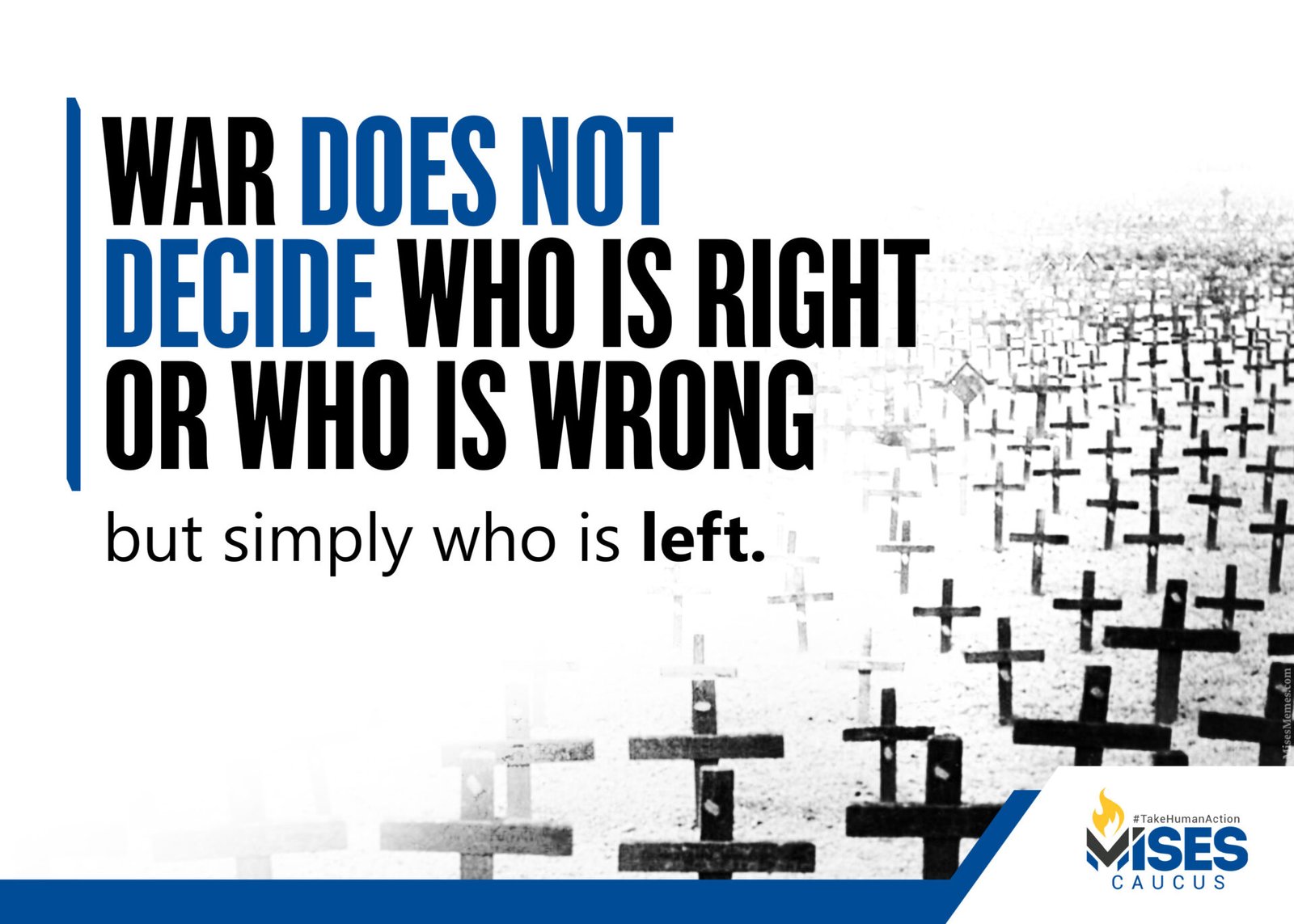

War does not decide who is right or who is wrong but simply who is left.
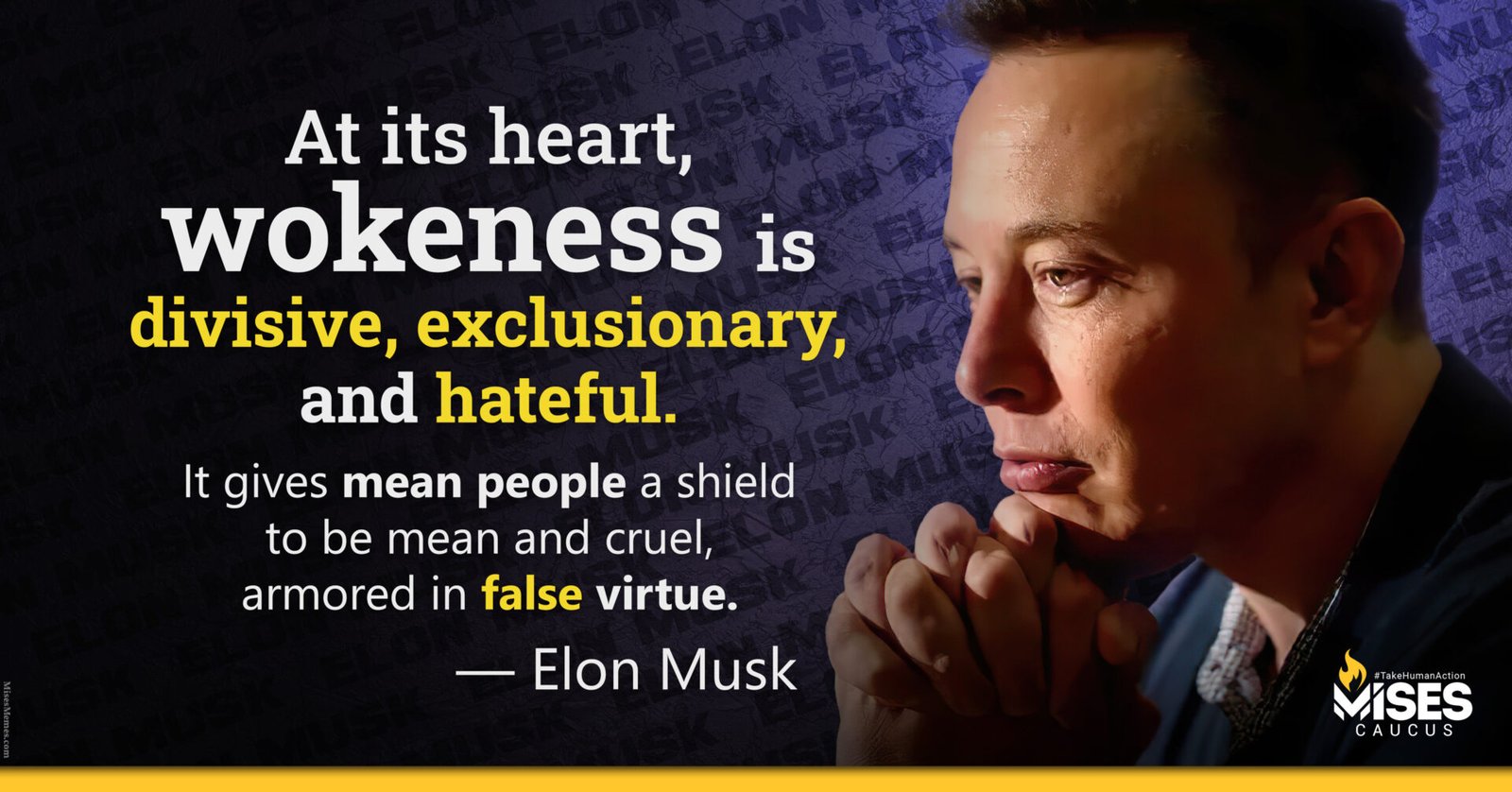
At its heart, wokeness is divisive, exclusionary, and hateful. It basically gives mean people a shield to be mean and cruel, armored in false virtue.—Elon Musk
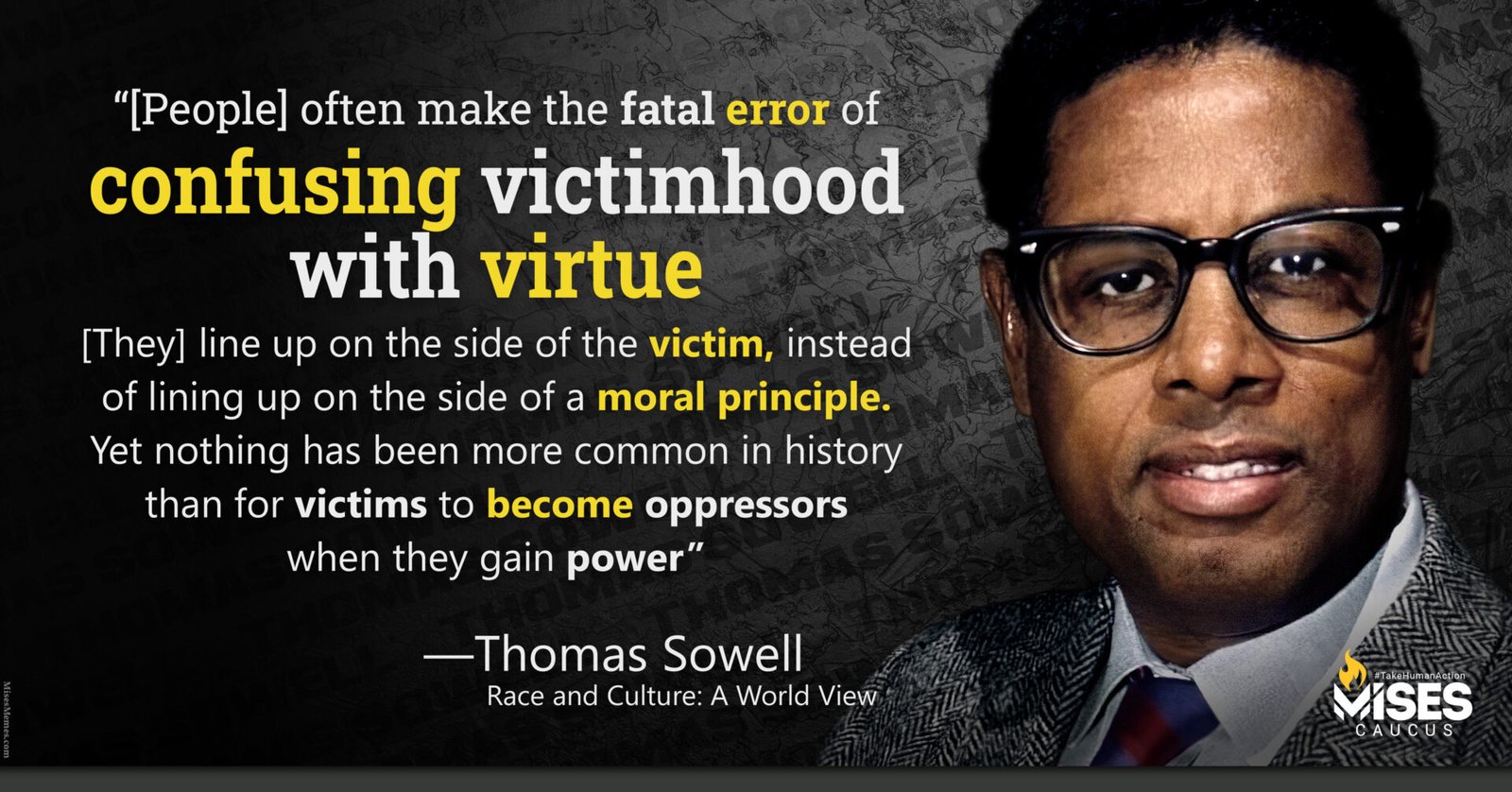
“[People] often make the fatal error of confusing victimhood with virtue
[They] line up on the side of the victim, instead of lining up on the side of a moral principle. Yet nothing has been more common in history than for victims to become oppressors when they gain power” —Thomas Sowell, Race and Culture: A World View
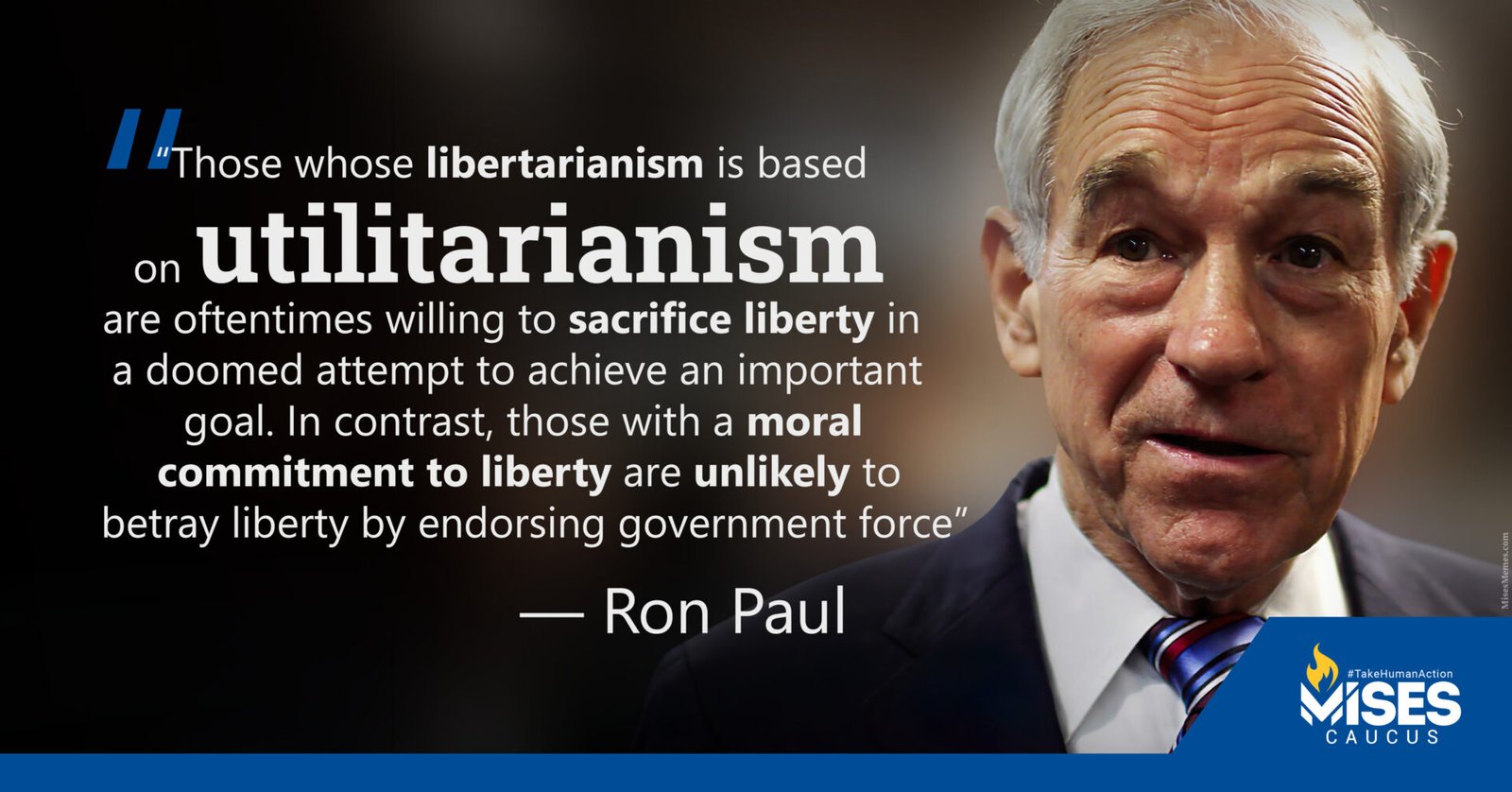
Those whose libertarianism is based on utilitarianism are oftentimes willing to sacrifice liberty in a doomed attempt to achieve an important goal. In contrast, those with a moral commitment to liberty are unlikely to betray liberty by endorsing government force. —Ron Paul

The rights of one man cannot and must not violate the rights of another. For instance: a man has the right to live, but he has no right to take the life of another. He has the right to be free, but no right to enslave another.
The very right upon which he acts defines the same right of another man, and serves as a guide to tell him what he may or may not do. —Ayn Rand
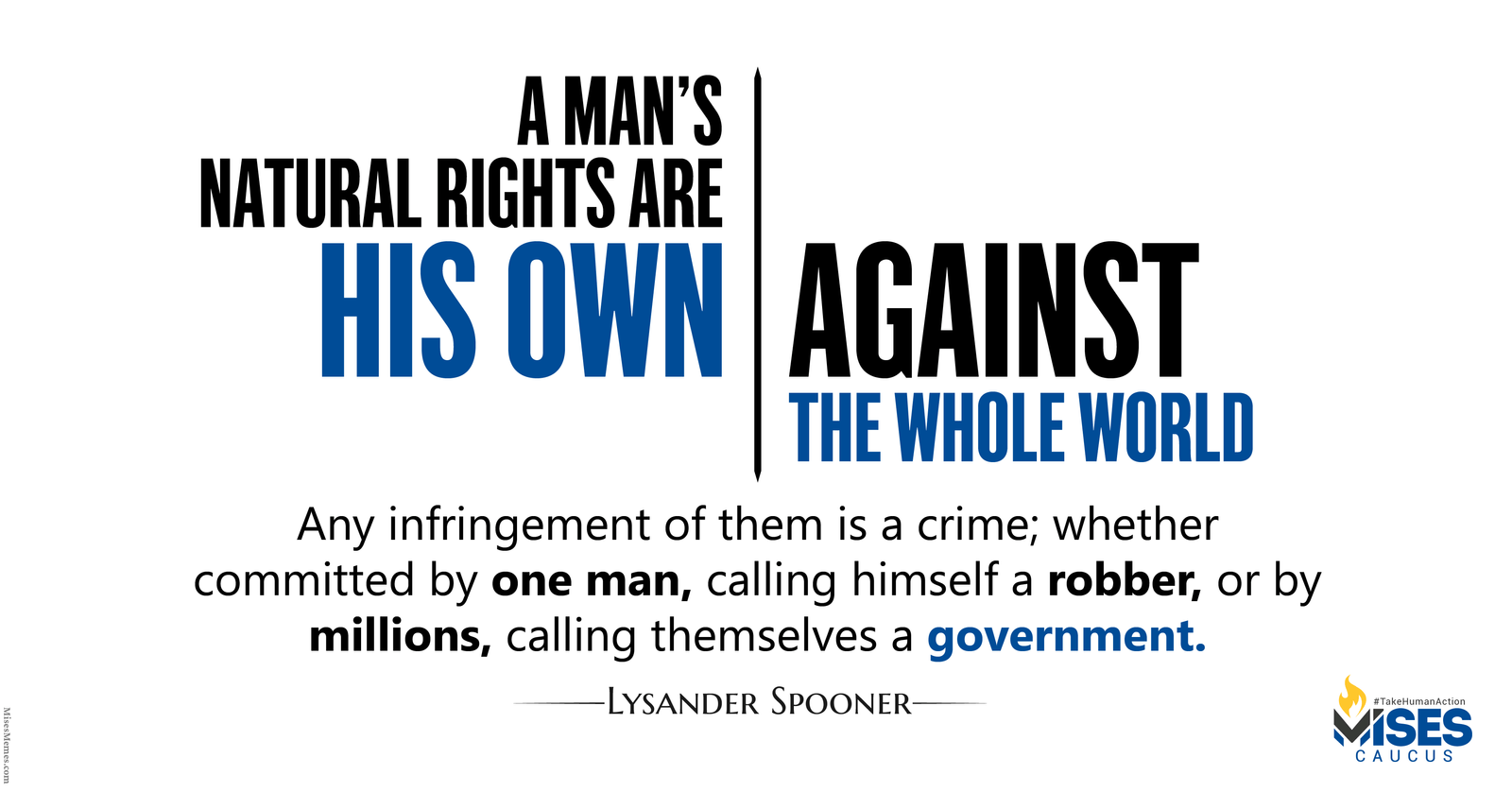
A man’s natural rights are his own, against the whole world; and any infringement of them is equally a crime, whether committed by one man, calling himself a robber, or by millions, calling themselves a government. —Lysander Spooner

The act of reaching into one’s own pockets to help a fellow man in need is praiseworthy and laudable. Reaching into someone else’s pocket is despicable. —Walter Williams
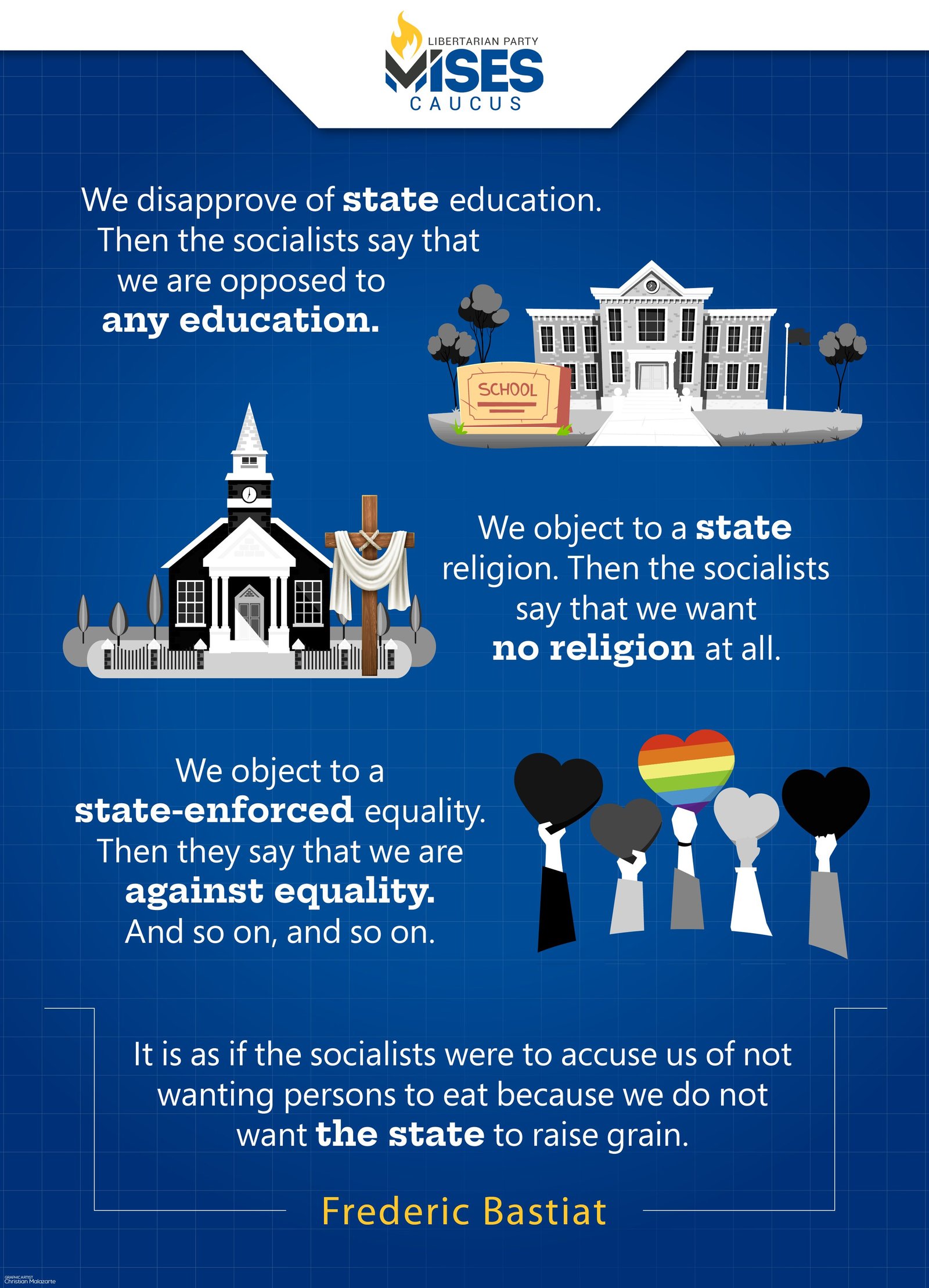
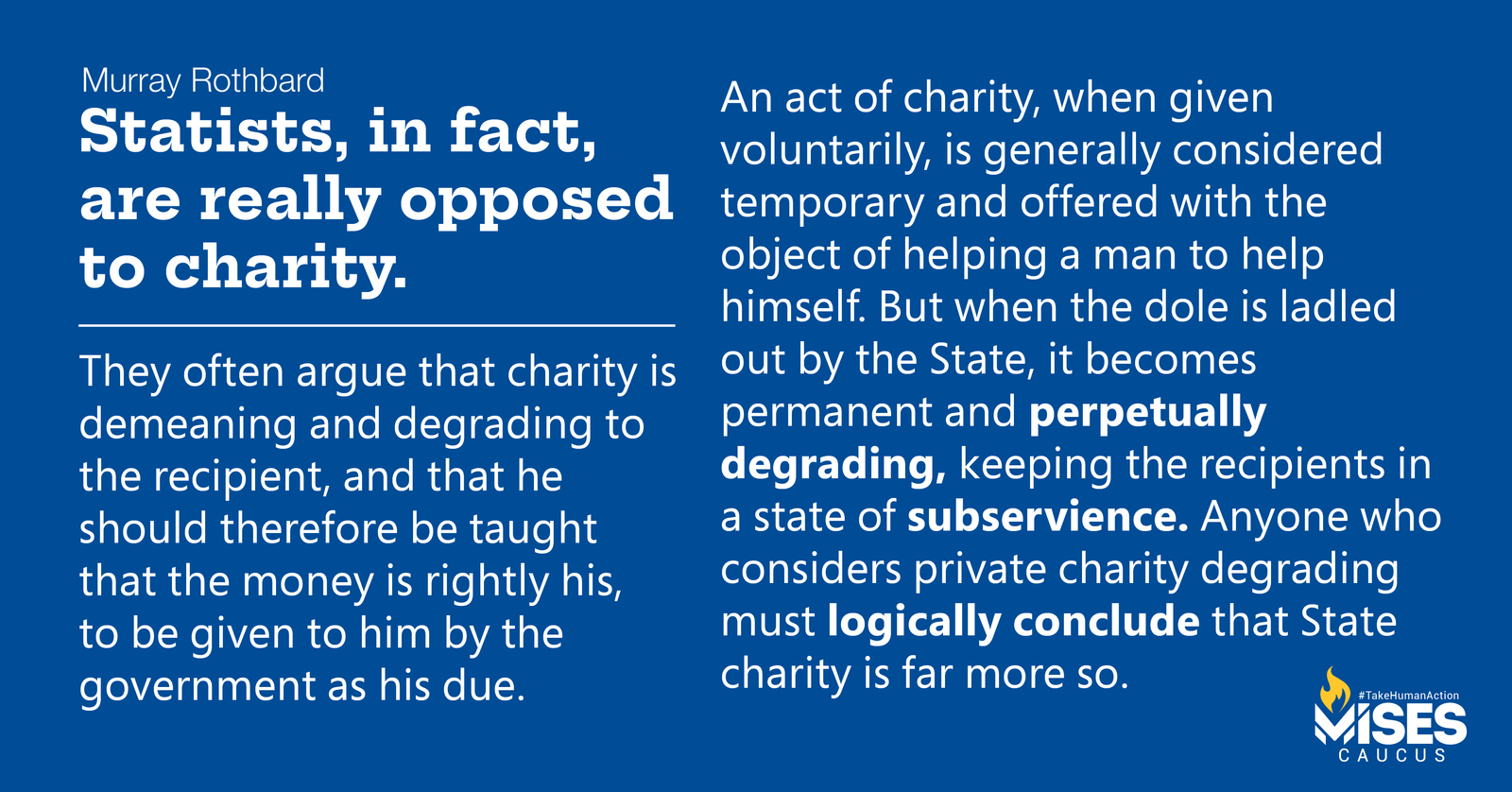
Statists, in fact, are really opposed to charity. They often argue that charity is demeaning and degrading to the recipient, and that he should therefore be taught that the money is rightly his, to be given to him by the government as his due. An act of charity, when given voluntarily, is generally considered temporary and offered with the object of helping a man to help himself. But when the dole is ladled out by the State, it becomes permanent and perpetually degrading, keeping the recipients in a state of subservience. Anyone who considers private charity degrading must logically conclude that State charity is far more so. —Murray Rothbard
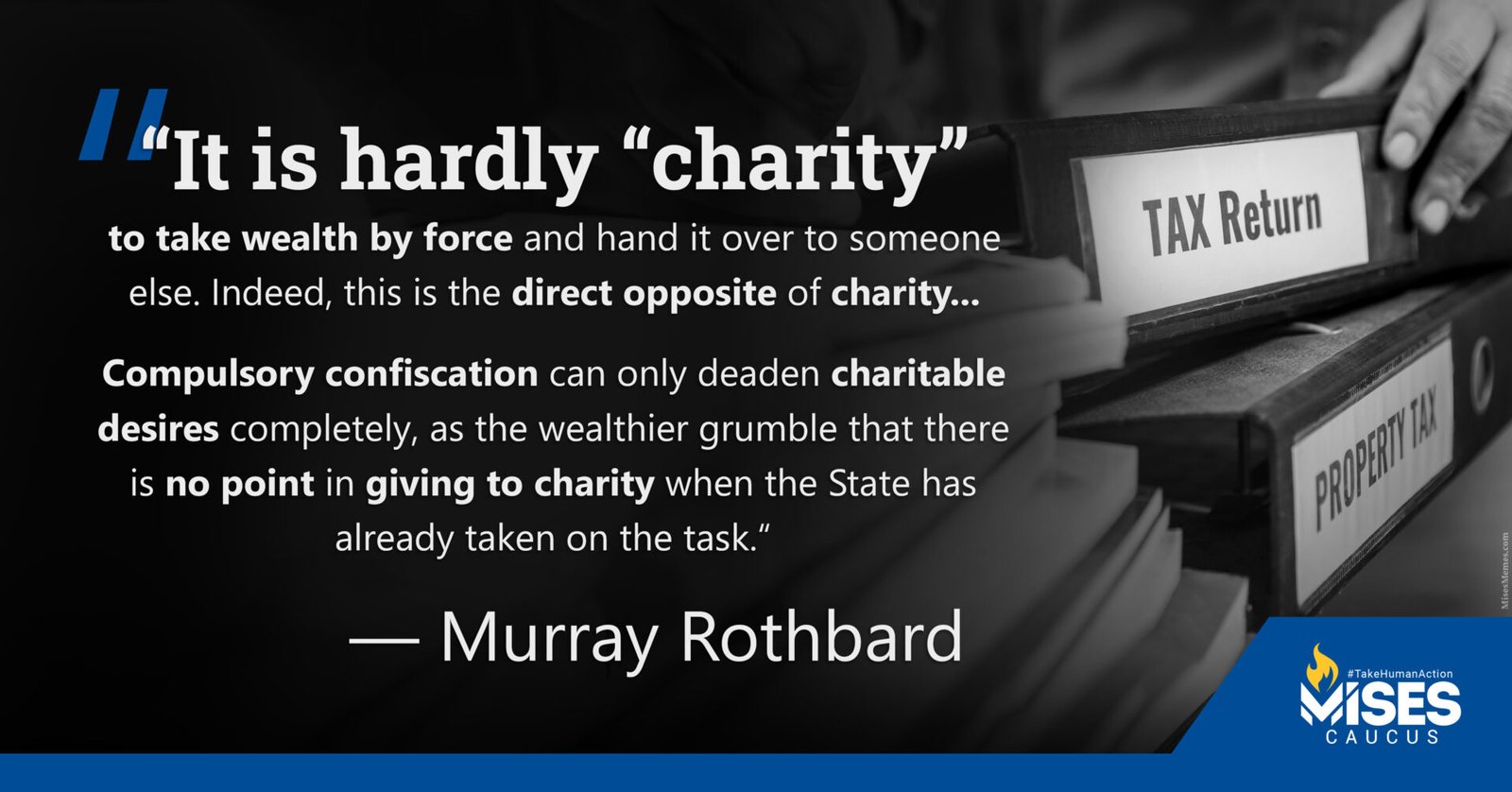
It is hardly “charity” to take wealth by force and hand it over to someone else. Indeed, this is the direct opposite of charity… Compulsory confiscation can only deaden charitable desires completely, as the wealthier grumble that there is no point in giving to charity when the State has already taken on the task. —Murray Rothbard